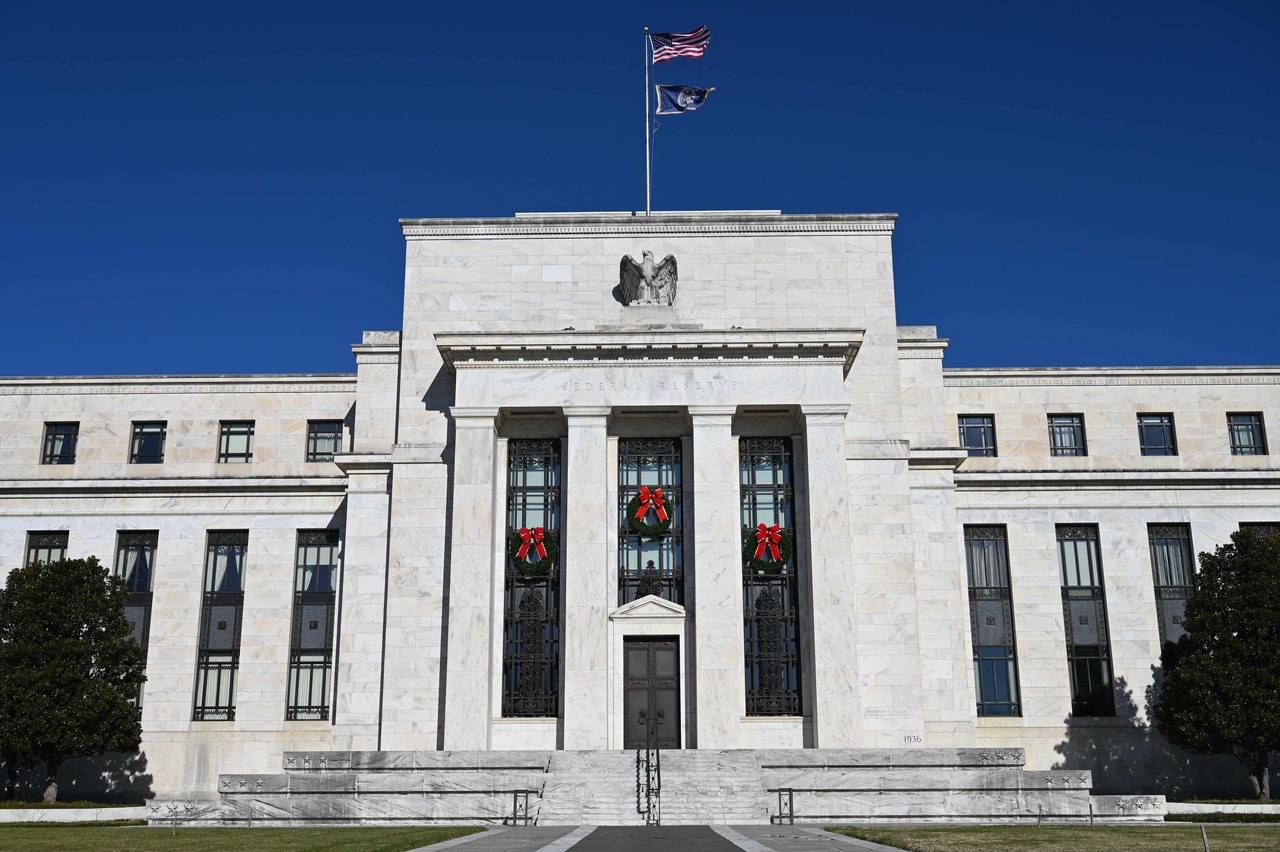Fed opens debate on issuing its own digital currency
Sign up now: Get ST's newsletters delivered to your inbox

The US Federal Reserve issued a report that set out a list of arguments for and against issuing a digital currency.
PHOTO: AFP
Follow topic:
WASHINGTON (NYTIMES, BLOOMBERG) - The Federal Reserve took its first step towards more seriously examining issuing a central bank digital currency (CBDC), releasing a report on Thursday (Jan 20) that examines the idea's potential costs and benefits and opening the door for public comment.
In the long-awaited report, the Fed avoided taking sides but set out a list of arguments for and against issuing a digital currency, and posed questions that will shape the debate.
"We look forward to engaging with the public, elected representatives and a broad range of stakeholders as we examine the positives and negatives of a central bank digital currency in the United States," Fed chair Jerome Powell said in a statement.
The Fed report comes as central banks around the world, most notably the People's Bank of China, move ahead with their own digital currencies.
China this year has ramped up a pilot of a digital yuan and is expected to trumpet its use at the Beijing Winter Olympics in February.
Some experts say China and other early adopters of digital currencies could set standards for other countries, in part because different countries' digital currency systems would eventually need to coordinate for cross-border payments.
That could make the Fed's research important even if a US digital dollar did not launch for years, since many countries would seek to tailor their own systems to integrate with the US.
In the absence of a Fed-issued digital dollar, private companies have launched their own version in the form of stablecoins that hold reserves meant to ensure the coins can be exchanged for fiat currency on a one-for-one basis.
A CBDC would, basically, be electronic cash. While consumers already use digital money when swiping a credit card or making purchases online, that money is actually backed by the banking sector. A Fed version would be backed by America's central bank, just like a US dollar bill.
Given the US currency's dominant position in global finance, the Fed has been clear that it is moving slowly and carefully as it weighs a digital dollar. And officials have emphasised that they would not move forward without congressional approval.
"The Federal Reserve does not intend to proceed with issuance of a CBDC without clear support from the executive branch and from Congress, ideally in the form of a specific authorising law," the report noted.
The Fed outlined a series of potential benefits from a US-backed coin, including ensuring the US dollar remains the pre-eminent currency in the international financial system. The central bank also said a CBDC could improve cross-border payments, increase financial inclusion and ease the dollar's use in new technology.
However, the Fed also warned of possible negative effects, including draining deposits from traditional banking and making runs on financial firms more likely or more severe.
Another concern has been privacy, since the government could have a direct view into individual citizens' transactions.
The report offered few details on how that could be resolved, saying the Fed "would need to strike an appropriate balance between safeguarding consumer privacy rights and affording the transparency necessary to deter criminal activity".
Also, the infrastructure of this new system could be a tempting target for hackers. So, shielding a Fed CBDC could be "particularly difficult", the report said because it would "have more entry points than existing payment services".
A Fed official said on a call with reporters that the central bank will assess next steps after the comment deadline, but did not offer a timeline for when a digital dollar could ultimately be implemented.
It indicated that it would rely on private sector intermediaries, which could be traditional lenders or non-banks, to offer accounts and facilitate CBDC payments, rather than taking on that role itself.

